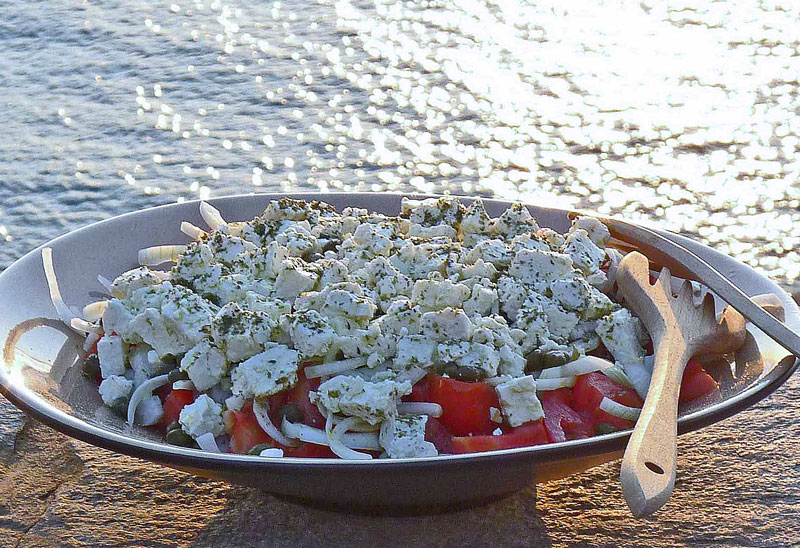A moist, fragrant, and barely sweet vegan cake that can be a treat with tea or coffee, or enjoyed as a snack any time of day. It should be made a day in advance, and it keeps for at least a week, getting better each day if stored in an airtight container at cool room temperature.


My mother used to bake a cake similar to this during Lent. We were not so religious as to follow the rules of the Church, which prohibited eating any food derived from animals during the forty days before Christmas and before Easter (and on many other occasions). We were simply continuing a family tradition which dictated that various foods or sweets should be made at a particular time of year.
The caramelized ginger, my recent addition to the recipe, enhances the rich flavor of this cake that has a dense texture, somewhat like an English fruitcake.
Makes one 12 X 5 inch (30 X 12cm) cake (more…)








